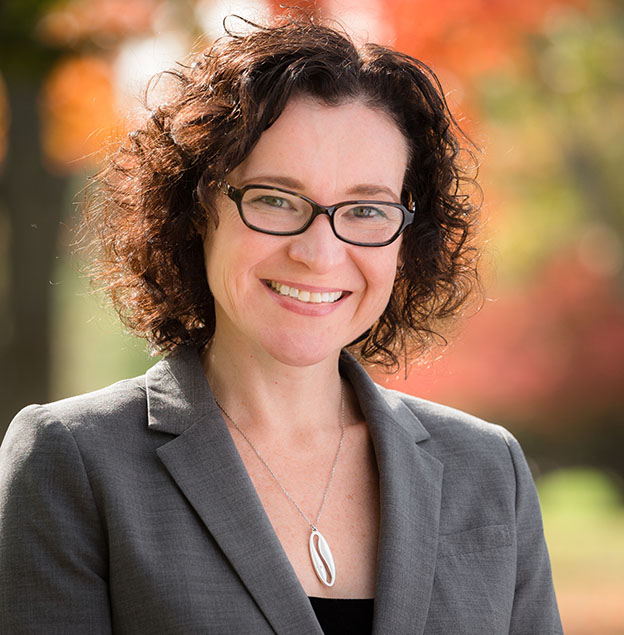Tackling community challenges across Canada

Kathleen Martin Ginis is leading a seven-year project that will enhance the quantity and quality of community participation among Canadians living with a physical disability. The project has been awarded $2,643,997 and was one of only fourteen chosen by SSHRC in the Canada-wide Partnership Grants competition.
McMaster researchers will be at the helm of five multidisciplinary partnerships that have attracted more than $3.3-million in funding from the Social Sciences and Humanities Research Council (SSHRC).
The community-based projects will better the lives of Canadians with physical disabilities, harness digital technologies to enhance both participation in and the quality of governance for First Nations communities, improve employment outcomes for homeless youth with intellectual and developmental disabilities, provide a publicly accessible, user-friendly community planning and visualization system for the City of Hamilton and examine the challenges and opportunities facing Canada’s oceans and the coastal communities that depend on them.
Kathleen Martin Ginis is leading a seven-year project that will enhance the quantity and quality of community participation among Canadians living with a physical disability. More than 50 partners – ranging from community-based disability-related service groups to government organizations at every level, and from university researchers to non-profits and national charities – are committed to developing and implementing evidence-based tools and services to assist Canadians with disabilities to achieve full community participation.
“Canadians with physical disabilities do not fully enjoy the UN-protected basic right to ‘full and effective participation and inclusion in society’,” says Martin Ginis. “Canadians with disabilities consistently identify three areas where they feel the most restrictions, and where they’d most like to participate – in the workforce, in sports and recreation, and simply being able to move about their communities independently and with dignity.”
Martin Ginis’ project has been awarded $2,643,997 and was one of only fourteen chosen by SSHRC in the Canada-wide Partnership Grants competition.
McMaster co-applicants Catherine Connelly, Canada Research Chair in Organizational Behaviour and associate professor in the DeGroote School of Business, will lead the Employment (both employment-seeking and retention) team, and Steven Bray, professor of kinesiology, will be part of the Sport (both recreational and competitive leisure time physical activities) team.
“Our partnership is poised to generate new knowledge that can be turned into products, tools and services that will have a profound impact on community participation among the nearly three million Canadians living with physical disabilities,” says Martin Ginis. “The social and economic significance of these activities cannot be overstated – when people with physical disabilities are full participants in their communities, all Canadians benefit from a strong, more competitive society in which everyone can use their talents, skills and resources.”
In addition to Martin Ginis’ Partnership Grant, Stephanie Baker Collins, Chelsea Gabel, and David Harris Smith were each awarded Partnership Development Grants, while Nancy Doubleday is a co-chair of a working group on a UBC-led Partnership Grant.
“Our researchers have identified and targeted social challenges that impact not only our Hamilton community, but the quality of life for all Canadians,” said Fiona McNeill, Associate Vice-President, Research and McMaster’s SSHRC Leader. “Through their collaborative research partnerships and strong connections to dozens of community, not-for profit and government organizations, these five projects will ask and answer questions critical to our collective welfare.”
Stephanie Baker Collins, associate professor, Social Work, will be leading Better Prospects: Building knowledge and networks to improve employment outcomes for disabled youth experiencing homelessness. The project has been awarded $197,152 from SSHRC and will focus particularly on improving the employment outcomes for youth with intellectual and developmental disabilities (ID/DD) who have experienced homelessness. The goal of the partnership is to systematically map the intersections between ID/DD, education, and employment among youth in order to identify system-wide gaps and opportunities to develop interventions, improve policy and further research.
Chelsea Gabel, assistant professor, health aging and society, has been awarded $199,980 to explore The Impact of Digital Technology on First Nations Participation and Governance. The project brings together a unique collaboration of academic, community, government, non-government and industry partners who have knowledge and expertise in Aboriginal politics, First Nation communities, Internet voting and e-democracy, civic and electoral engagement. All partners in this project are eager to develop insights and strategies for harnessing digital technologies to enhance participation and the quality of governance for First Nation communities. The partnership includes First Nationals communities in Ontario that plan to implement Internet voting and e-democracy within the coming year.
David Harris Smith, assistant professor, communication studies and multimedia, has been awarded $195,000 for the project Virtual Hamilton: A Virtual Environment for Participatory Urban Planning. The collaborative research partnership among researchers from McMaster (geographer John Eyles) and Ryerson University, the City of Hamilton, urban planning professionals and community stakeholders will develop, assess and implement case studies of a participatory urban planning system for the City of Hamilton that utilizes an online 3D virtual world with integrated social media to facilitate stakeholder visualization, multiuser content contribution, and communication.
Philosophy professor Nancy Doubleday is providing her expertise to the 6 year, $2.5M OceanCanada Partnership, an interdisciplinary research collaboration between 15 Canadian universities, non-governmental organizations, and Fisheries and Oceans Canada. The partnership will examine the future health and economic potential of Canada’s oceans from coast to coast to coast. Doubleday, HOPE Chair in Peace and Health, will serve as a co-chair of the Arctic Ocean Working Group with Fraser Taylor (Carleton University), sharing a budget of approximately $240,000 to prepare an atlas and conduct policy-sensitive case studies.

